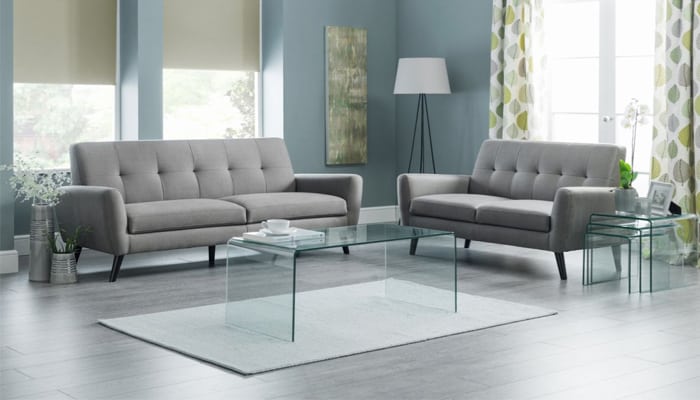When you’re a landlord, adhering to the latest safety regulations for your properties is crucial, not only to protect the wellbeing of tenants, but also to ensure you don’t receive a hefty fine or even a stint at Her Majesty’s pleasure!
Breaking the law as a landlord has very serious repercussions when it comes to the Furniture and Furnishings (Fire) (Safety) Regulations 1988 for HMOs. Landlords in England and Wales who don’t comply are breaking the law and could face a prison sentence.

If found guilty, they can be fined up to £5,000 per item of furniture that fails to meet safety standards; face up to six months in prison; be sued for civil damages by a tenant; or be charged with manslaughter in the event of a tenant’s death. The property’s insurance can also be rendered invalid.
In England and Wales, the Regulatory Reform (Fire Safety) Order 2005 also applies. There are similar laws in place in the other home nations, namely the Fire (Scotland) Act 2005 and the Housing (Management of Houses in Multiple Occupation) Regulations (Northern Ireland) 1993, governing the safety of tenants in HMOs.
Fire safety standards
Although the law can seem complicated, it’s vital that every landlord understands the rules and follows them to the letter. The law places a responsibility on social landlords to carry out fire safety assessments and act on the recommendations.
Furniture and upholstery must meet stringent fire safety standards in HMOs and all rented properties. In particular, specific requirements apply to furnished properties. If you’re providing furniture as a landlord, it’s your responsibility to make sure it meets the legal requirements.
All furniture must be made from fire-resistant materials or be treated by the manufacturer with fire retardant coatings. You need to check the manufacturer’s label on the furniture you provide. The items should have one permanent label attached by the manufacturer. This cannot be removed and will provide information on the materials used in the item.
The filling of any upholstered items must be fire resistant and must pass the “cigarette test” and the “match resilience test”. Bed bases and mattresses must have a label to show they comply with BS7177 – the legal safety standard.
What furniture is included?
Your tenants have the right to check whether the furniture and furnishings supplied by the landlord are safe and meet the legal standards. If there are any issues, they can bring this up with the landlord or letting agent. The landlord will be obliged to rectify the problem right away, should it break the furniture safety laws. Included in the legislation are three-piece suites, sofas, sofa beds, futons, armchairs, all convertible furniture, beds, divans, headboards, bed bases and pillows. Also included is all nursery furniture, garden furniture that can be used inside the property, loose covers, stretch covers, fitted covers, pads for seats and scatter cushions.
Certain items are not included, such as any furniture or other antique items made prior to 1950, sleeping bags, loose mattress covers, pillowcases, duvets, bed covers, curtains and carpets. As a landlord, you are not responsible for any furniture, upholstery, electrical appliances or other equipment that is the tenant’s own property. Anything that a tenant brings into your property is deemed to be their own responsibility, including decorations and clothes.
If the tenant’s own possessions are determined to be the reason a fire broke out, the landlord or letting agent are not liable in this situation.
Before renting out HMOs, make sure you’re fully conversant with all of the furniture and furnishings legislation that applies to your properties. As a landlord, you must keep up to date with any changes in the law and ensure your properties remain compliant.
Contact Furniture Pack Solutions to take the hassle out of furnishing your HMOs and other rental properties with our high-quality furniture packages – all our products meet legal requirements.
